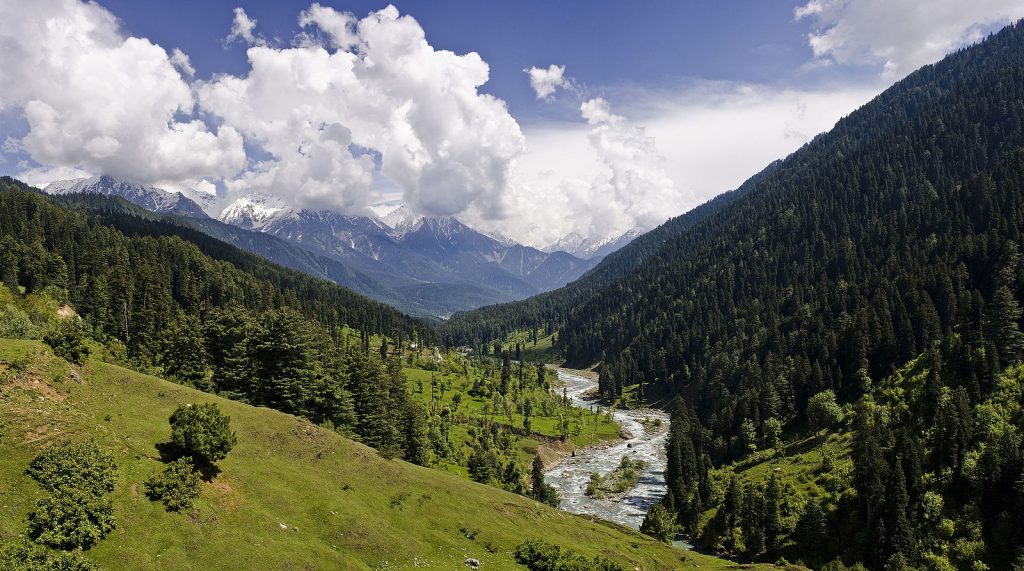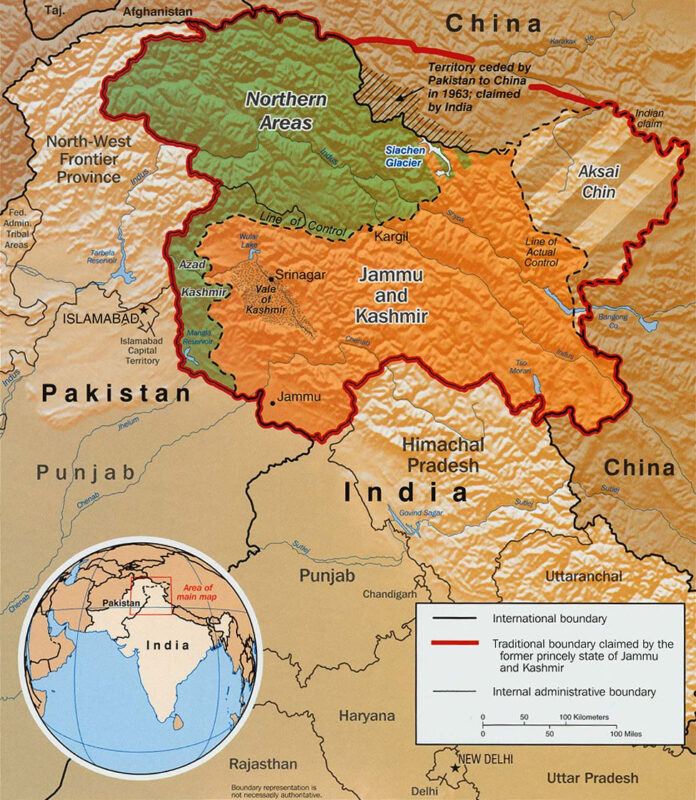India on Wednesday suspended the Indus Waters Treaty with Pakistan with immediate effect in wake of killings of 26 tourists when gunmen opened fire on visitors in a popular destination in occupied Kashmir a day ago. The developments in the heavily militarized disputed Kashmir region mark a sudden escalation in tensions between the two nuclear-armed South Asian neighbors.
New Delhi, which imposed a strict rule over the strategic Himalayan region after ending its constitutional autonomy in 2019, vowed that a “loud and clear” response would be delivered to the attack but shared no evidence publicly that linked the attack to Pakistan.
In its initial reaction,. Islamabad had expressed concern over the attack.
Analysts say India has taken the step unilaterally, while the treaty provisions clearly stipulate that the treaty will remain in effect until the two parties revoke it by reaching another treaty.
The attack, which police said injured another 17 people, took place in Pahalgam — a destination favorite with tourists located in the scenic Muslim-majority territory. Tuesday’s attack was the region’s deadliest on civilians since 2000.
Indian Foreign Secretary Vikram Misri said the Cabinet Committee on Security (CCS), Indians’ highest decision-making body on national security, met under Prime Minister Narendra Modi over Tuesday’s incident, where the “cross-border linkages of the terrorist attack were brought out.”

It was noted that this attack came in the wake of the successfully held elections in the territory and its steady progress towards economic growth and development.
“Recognizing the seriousness of this terrorist attack, the CCS decided upon the following measures: the Indus Waters Treaty of 1960 will be held in abeyance with immediate effect until Pakistan credibly and irrevocably abjures its support for cross-border terrorism.”
The Indus Waters Treaty is a water-sharing agreement between Pakistan and India, facilitated by the World Bank. It allocates the waters of the Indus River system between the two countries. It has survived two full wars of 1965 and 1971 and a limited Kargil war in 1999.
Pakistan’s Foreign Office Spokesperson Shafqat Ali Khan in a statement said: “We are concerned at the loss of tourists’ lives in an attack in Anantnag district of Indian Illegally Occupied Jammu and Kashmir. We extend our condolences to the near ones of the deceased and wish the injured a speedy recovery.”
The Indus Waters Treaty is a water-sharing agreement between Pakistan and India, facilitated by the World Bank. It allocates the waters of the Indus River system between the two countries. It has survived two full wars of 1965 and 1971 and a limited Kargil war in 1999.
Pakistan’s Foreign Office Spokesperson Shafqat Ali Khan in a statement said: “We are concerned at the loss of tourists’ lives in an attack in Anantnag district of Indian Illegally Occupied Jammu and Kashmir. We extend our condolences to the near ones of the deceased and wish the injured a speedy recovery.”
The Indian foreign secretary said movement at the Attari border check post between the two countries would be closed with immediate effect. “Those who have crossed over with valid endorsements may return through that route before May 1, 2025,” he added.
“Pakistani nationals will not be permitted to travel to India under the SAARC Visa Exemption Scheme,” he said. Besides, all such visas issued in the past were deemed cancelled and any Pakistani in India under the scheme had 48 hours to leave the country.
New Delhi also declared Pakistani defense, military, naval and air advisers at the Pakistani High Commission in New Delhi as persona non grata and asked them to leave India within a week.
India will be withdrawing its own defense, navy and air advisers from the Indian High Commission in Islamabad,” he said, adding that the posts were deemed annulled and their support staff would be withdrawn as well.
According to the foreign secretary the overall strength of the high commissions would be curbed to 30 from the present 55 through further reductions to be implemented by May 1.
“The CCS reviewed the overall security situation and directed all forces to maintain high vigilance. It resolved that the perpetrators of this attack will be brought to justice and their sponsors held to account.”
He said India would be “unrelenting in the pursuit of those who have committed acts of terror or conspired to make them possible”.
The killings came a day after Modi met in New Delhi with US Vice President JD Vance, who is on a four-day tour of India with his wife and children.
Meanwhile, an unknow group, identified in the Indian media as ‘The Resistance Front’, is said to have claimed responsibility for the attack.
A similar incident took place ahead of former US president Bill Clinton’s visit to Delhi in the year 2000, when 36 Indians were killed, but there has been considerable dispute over who staged it.
At the time, India had blamed Pakistan-based militants, but Indian and Kashmiri observers decried it as an alleged plot by the Indian army.
Pakistani defense expert, Ahmed Saeed Minhas, a retired brigadier, denounced Indian media for blaming Pakistan without evidence, pointing out that the attack occurred 400 kilometers inside Indian-administered part of Kashmir.
Minhas referred to India’s past response, saying the last time India blamed Pakistan for an attack in 2019, that Pakistan has shown great restraint by returning Indian pilot Abhinandan safely.
India experts say the killings have put New Delhi under pressure to retaliate.
“The whole idea, I think, behind this attack was to sort of puncture that narrative that, you know, everything is fine,” D.S. Hooda, a retired Indian army general, said, according to The New York Times.
Hooda, who, according to the Times, led Indian’s northern command based in Kashmir. “The government will be under tremendous pressure to react.”
Local officials in Kashmir have confirmed reports that 25 of the 26 killed were Hindus.
Former Pakistan senator, Mushahid Hussain Sayed, condemned India’s practice of “jumping to blame” Pakistan following terror incidents in India or the disputed Jammu and Kashmir territory.
He called it an “automated response” by the Indian government that such actions, recalling that in the past India did so in the case of the Jaffer Express attack and now the Pahalgam incident. He said this pattern shows India’s routine to shift the blame without any investigation.














